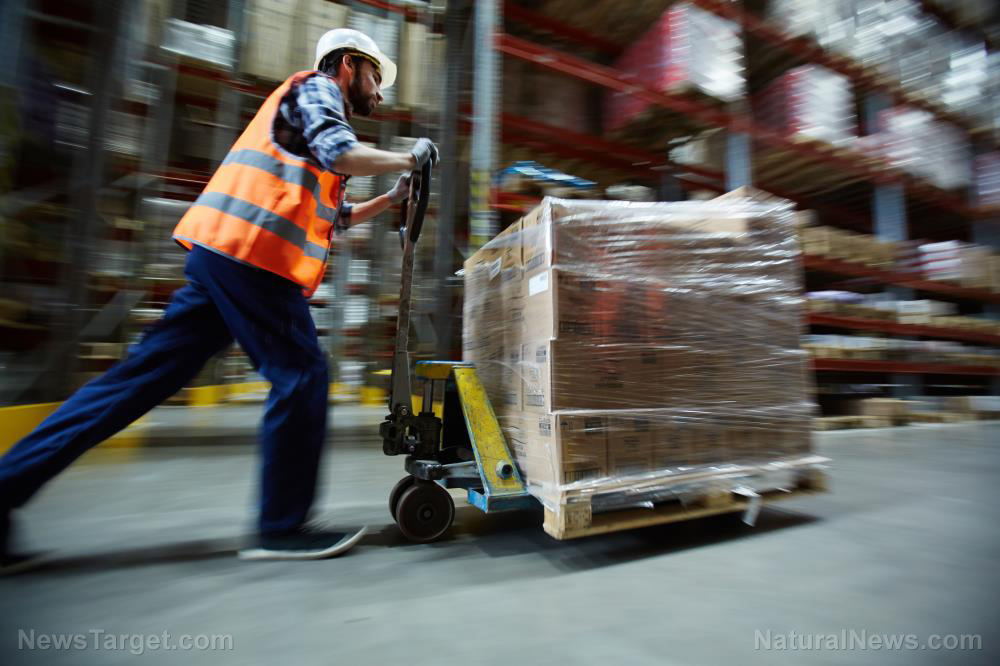(Mary Villareal) A supply crunch for non-essential items is creating a full-blown crisis as it leads to shortages in energy, labor and transport in various parts of the globe. All these problems are parts of the rising post-pandemic consumer demands that could push the global economic recovery off course.
Related Biden Warns ‘Economic Crisis Deepening’ After Slashing Thousands of Jobs on Day One
by Mary Villareal, October 5th, 2021
Mohamed El-Erian, insurance giant Allianz’s adviser and president of Queen’s College, University of Cambridge, says that the fall in factory output in China serves as a warning that the world economy could slump while prices keep rising.
He says that the supply chain problems are more persistent than expected, although companies are less surprised. “Governments are having to rethink quickly because the three elements – supply side, transport, labor – are coming together to blow a stagflationary wind through the global economy,” El-Erian says.
Energy shortages have provided a stark illustration of the problem, with increasing numbers of gasoline stations in the U.K. now running out of fuel and cities in northern China rationing power and forcing factories to close down just as pre-Christmas demand is reaching its peak in western countries.
Both the U.K. and China have been caught lacking reserves amidst the scramble for natural gas and oil, which have doubled their prices in 12 months to nearly $80 a barrel.
COVID-related restrictions in large manufacturing countries such as Vietnam and well-documented shortages on components such as computer chips also show that factories are not producing enough.
“Name almost anything and it seems like there’s a shortage of it somewhere. Retailers are struggling to replenish inventory as fast as they’re selling, let alone prepare for holiday demand,” says Bob Biesterfeld, CEO of one of the world’s largest logistic firms, C.H. Robinson.
British car production also dropped by 27 percent year on year in August due to the shortage of semiconductors, which led to a big drop in the number of vehicles exported to Australia, the U.S. and China.
Volkswagen, Ford and Stellantis also recently announced temporary closures in Germany due to chip problems.
Japan saw a drop in stocks and finished goods to levels not seen even in the wake of the 2011 earthquake and tsunami disaster.
Problems do not end in lack of supply
The cost of shipping goods from China to North America and Europe continues to climb.
Even if companies can find more energy and materials sources, it will still cost factories more to ship items. Drewry’s shipping index, which measures the cost of containers, is up 291 percent from a year ago. On some busy routes, such as from China to Rotterdam in Europe, the cost of a shipping container has risen sixfold in the past year.
Upon reaching port, labor shortages present a final problem in getting the products to their final destination as lack of truck drivers in the U.S. and many parts of Europe adds to the delays.
Flavio Romero Macau, a supply chain expert at Edith Cowan University in Western Australia, says that the massive pent-up consumer demand in the wake of the pandemic has strained the balance of the economic ecosystem.
Consumers are also buying plenty because of the dollars from government stimulus, higher savings and pent-up demand. Anything from PlayStations to laptops, phones and gym equipment are all on the table as things that people want to buy. “Higher demand and restricted supply equal inflation. There’s no way out of it. You put all these things together and it’s a perfect storm,” Romero Macau says.
More economists also believe that central banks need to move faster to raise interest rates if inflation takes hold across the developed world. The Bank of England, for instance, has already flagged rates that could go up in the next year, while the U.S. Federal Reserve has signaled the end of its massive pandemic stimulus plan that could push up the cost of borrowing in the next year.
A shift in monetary policy after years of cheap credit could follow a rebalancing of the global economy as countries seek to shorten supply chains to become more self-sufficient. Romero Macau believes that many companies could take the chance to move manufacturing away from China, and move it to countries like Vietnam and Mexico, where labor costs are cheaper.
Learn more about the continuing economic crisis at MarketCrash.news.
[the_ad_group id=”25840″]
Stillness in the Storm Editor: Why did we post this?
The news is important to all people because it is where we come to know new things about the world, which leads to the development of more life goals that lead to life wisdom. The news also serves as a social connection tool, as we tend to relate to those who know about and believe the things we do. With the power of an open truth-seeking mind in hand, the individual can grow wise and the collective can prosper.
– Justin
Not sure how to make sense of this? Want to learn how to discern like a pro? Read this essential guide to discernment, analysis of claims, and understanding the truth in a world of deception: 4 Key Steps of Discernment – Advanced Truth-Seeking Tools.
Stillness in the Storm Editor’s note: Did you find a spelling error or grammatical mistake? Send an email to [email protected], with the error and suggested correction, along with the headline and url. Do you think this article needs an update? Or do you just have some feedback? Send us an email at [email protected]. Thank you for reading.
Source:
https://www.naturalnews.com/2021-10-05-supply-chain-crisis-blows-economic-recovery-off.html
[the_ad id=”121669″]

Leave a Reply